THE DIVIDED HEART (1954)
Separated from her son by the Nazis, a mother struggles to reclaim him from his adoptive parents.
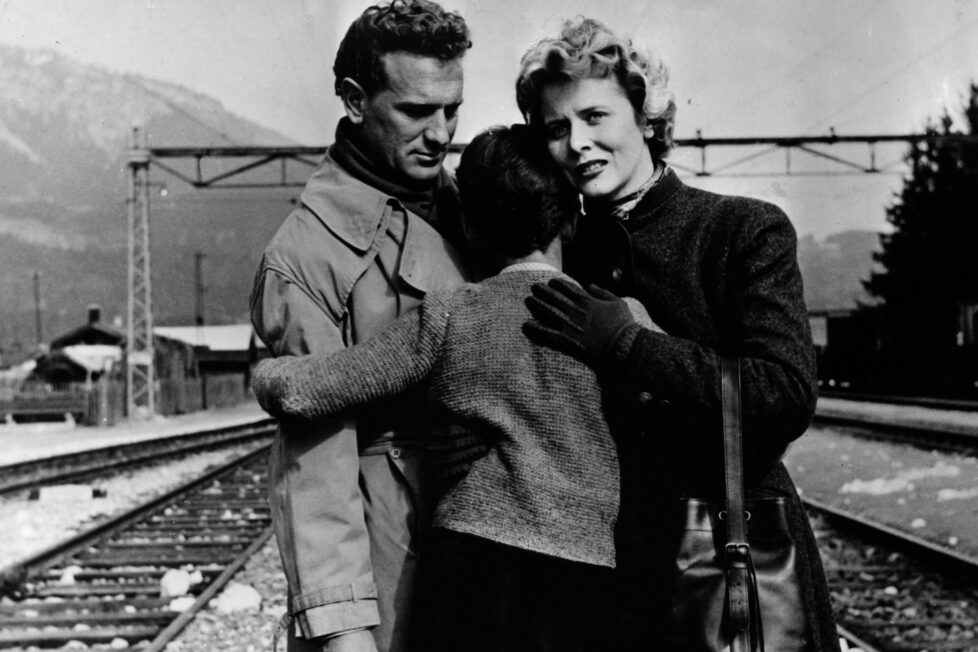
Separated from her son by the Nazis, a mother struggles to reclaim him from his adoptive parents.


With Basil Dearden’s Frieda (1947), Ealing Studios addressed the problem of Anglo-German reconciliation after World War II through the tale of a German woman trying to settle in an English village and the locals’ attitudes to her, ranging from condemnation to welcome. A few years later, with The Divided Heart, Ealing looked to related but even larger issues in continental Europe itself: not just the repairing of relations between former enemies, but also the practical problem of how to deal with the millions displaced by war.
Again, as in Frieda, a big subject is tackled through a more focused story; in this case that of a Slovenian mother trying to reclaim her child from the German couple who had adopted him. Again, the film’s a useful reissue from StudioCanal, and if it gets off to a slightly shakier, less coherent start than the earlier movie, it ends up delivering an even bigger emotional wallop.
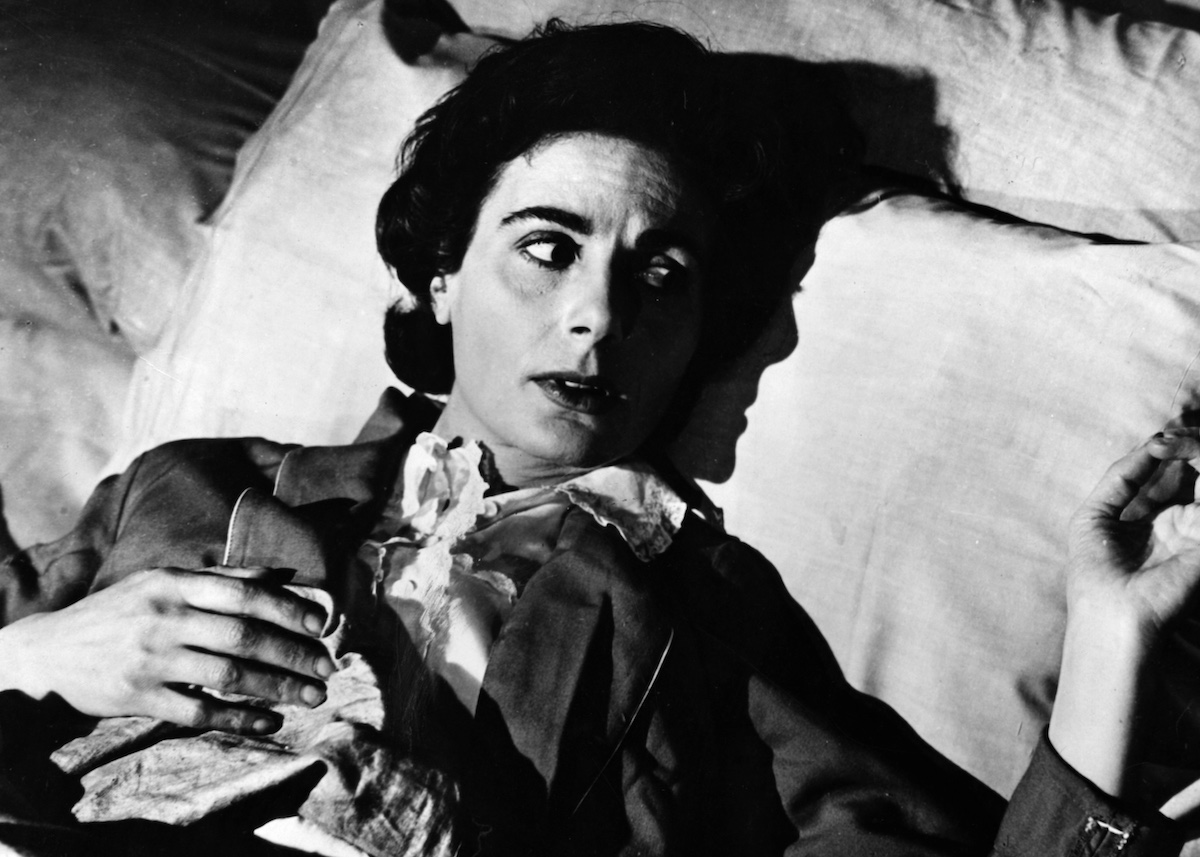
Directed by Charles Crichton—who had helmed two of the most famous Ealing comedies in The Lavender Hill Mob (1951) and The Titfield Thunderbolt (1953), and later returned to cinema after decades of absence for A Fish Called Wanda (1988)—The Divided Heart begins in the Bavarian Alps in 1952, where we meet 10-year-old Toni (Michel Ray) and his adoptive parents Franz (Armin Dahlen) and Inga (Cornell Borchers).
It’s all very gemütlich and even a little The Sound of Music (1965) until representatives arrive from the International Refugee Organization, who inform Franz and Inga that the lad they think of as their son has a mother still living in Yugoslavia (in the part now forming Slovenia). And she wants him back.
Bureaucracy swings into action. Though the couple believed they were secure in their legal adoption of Toni under the now-defeated Nazi regime, an official letter refers to him as an “unaccompanied displaced child”. Inga wants to run and hide from the problem; Franz insists they can’t, and must fight to keep Toni.
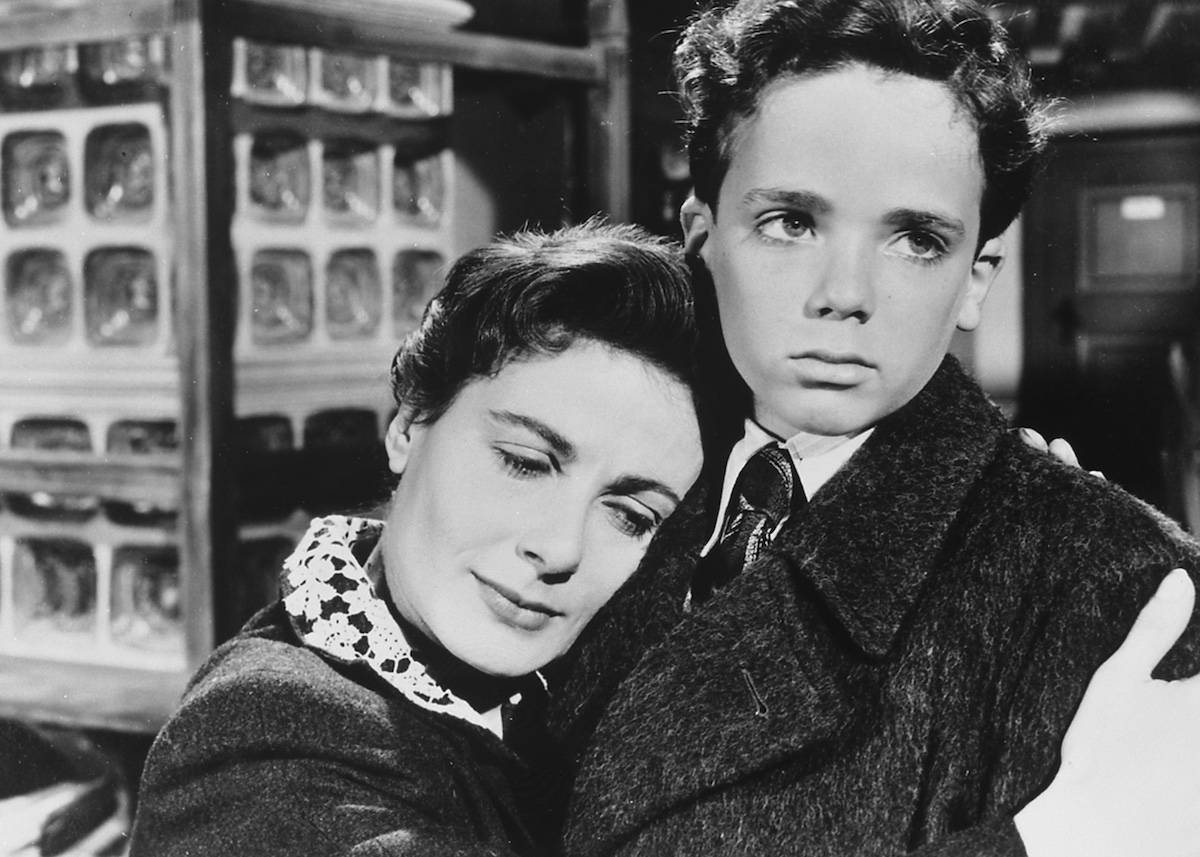
Meanwhile, The Divided Heart also offers glimpses into the past—showing both Toni’s adoption and his earlier, young childhood with his natural mother Sonja (Yvonne Mitchell)—before bringing everyone together in a courtroom where judges from the Allied occupation forces will hear the case.
Based on the true story of a boy called Ivan, The Divided Heart becomes (once fully underway) an absorbing drama precisely because of the impossible dilemma facing the judges as well as the other leads: Toni’s adoptive parents and Sonja are all completely sympathetic characters, both parties have convincing claims, and there’s genuine uncertainty about the outcome up until the point where each of the judges individually gives their opinion.
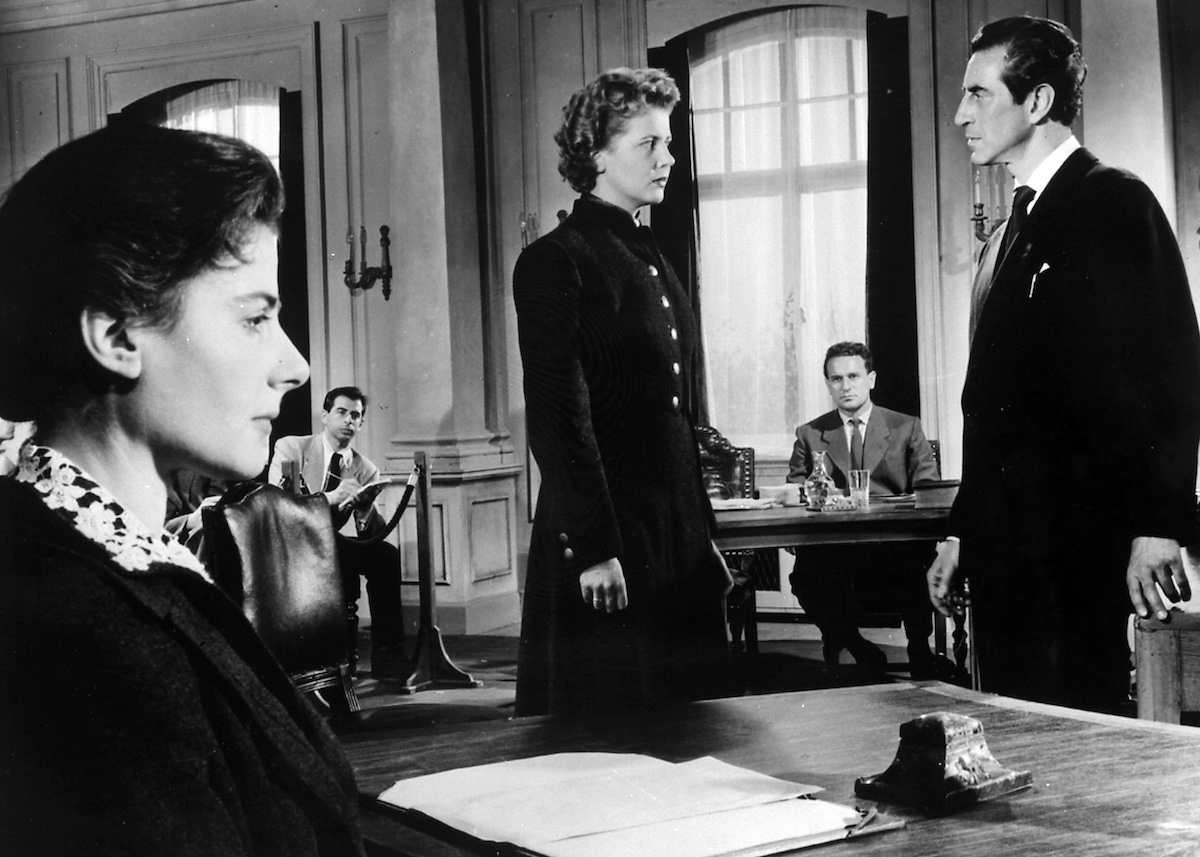
At the same time, without over-emphasising them, The Divided Heart also touches on some of the broader issues facing Europe as it began to try to heal from the war. Notable among these is the question of German collective guilt; Franz doesn’t want to force Toni to stay with him and Inga, because the boy’s family were victims and the couple’s country were the perpetrators of their suffering. We learn, in two vivid scenes, that Sonja survived Auschwitz and that the younger Toni was afraid of German military uniforms as a result of what he had witnessed in infancy.
Crichton’s film doesn’t ignore the emotional complexity of the individuals’ situations, either; for example, with a hint that Franz may be jealous of his wife’s relationship with Toni in the early days after his adoption.
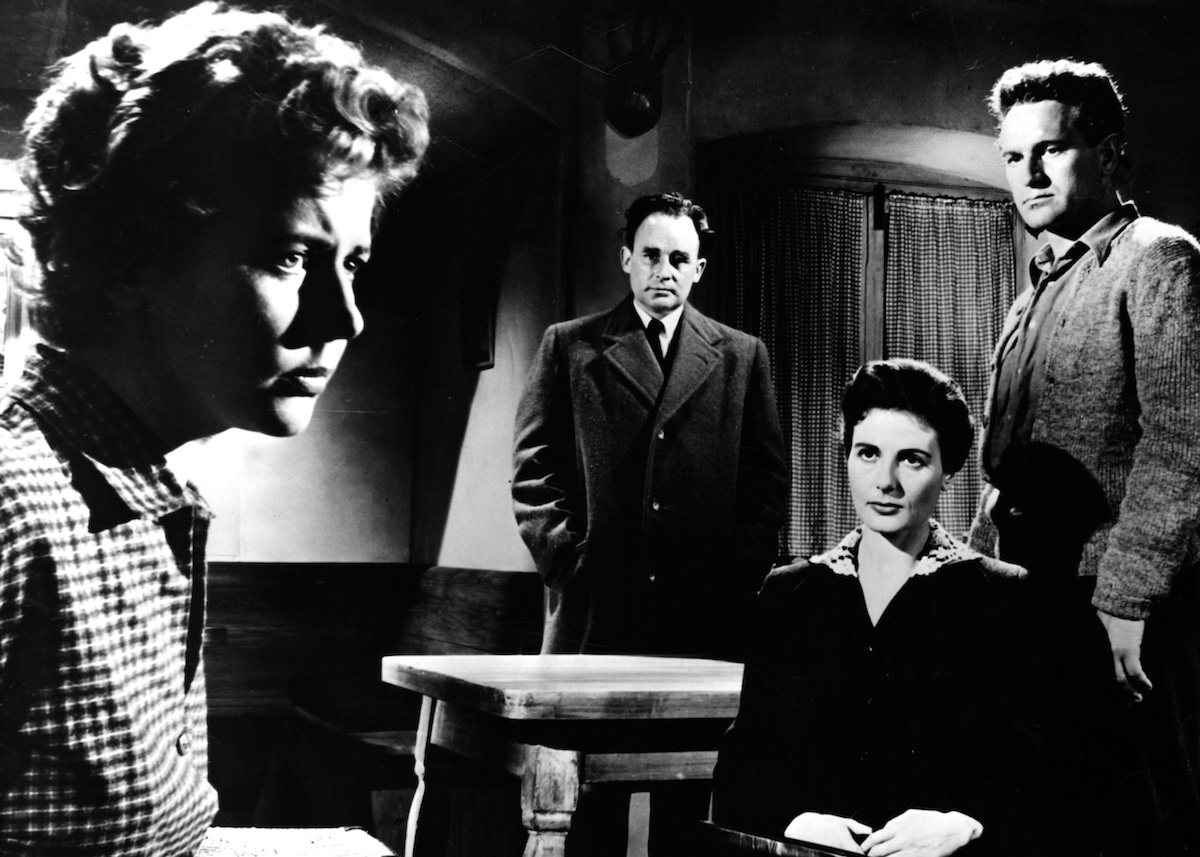
Many other individual moments stand out, often with small details illuminating a far bigger picture. In Slovenia, Sonja’s husband Josip (Theodore Bikel) comes out of the bank where he works and is marched off down an empty street by German soldiers; lengthy, utterly wordless shots of Sonja’s distraught reaction say more than any dialogue could. The almost deserted town of Toplik and the winter forests surrounding it are heavily atmospheric throughout this part of the back story, their uncompromising bleakness standing for the harshness of the Nazi occupation itself.
Another scene, set in 1944 at a Leipzig orphanage where Franz and Inga must choose between two boys to adopt, shows the same bleakness from a different perspective. While the film doesn’t question these particular adults’ motives, audiences are aware the children don’t belong there and are spoils of war seized by the regime and are being doled out to its citizens.
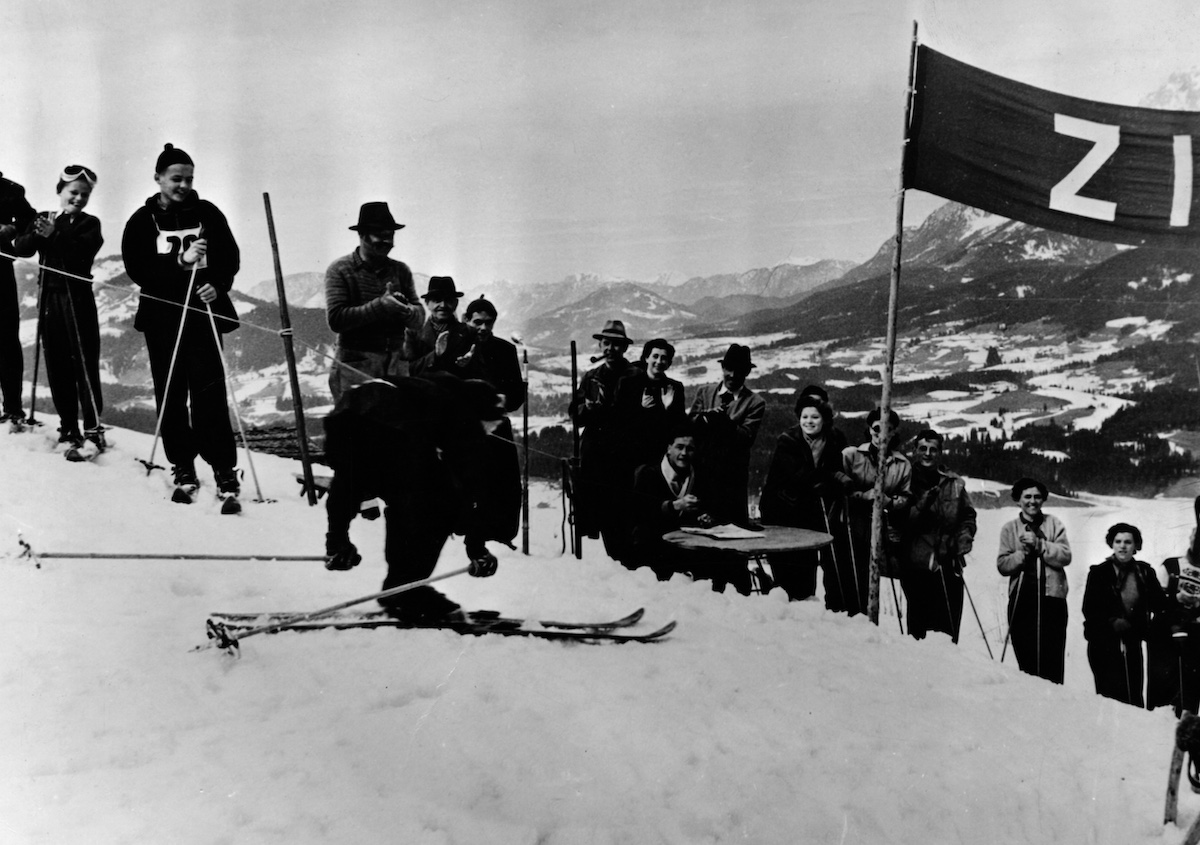
The single most impressive section of The Divided Heart, though, comes later. Sonja, in Germany for the court case, gets lost and asks some children the way to her hotel; they, being German speakers while she speaks only Slovenian, of course, don’t understand her, and then—in an almost surreal scene—attack her with snowballs. The implication, that she has no place in the world where her son now lives, is inescapable.
But Toni comes to her rescue and Georges Auric’s score (for most of the film relatively low-key) comes to the fore in an exuberant, idyllic scene where he teaches her to ski: it’s his favourite sport, and here he is admitting her into his life. A huge contrast to the dark, disconsolate mood that has dominated much of the film earlier, this is a turning point in The Divided Heart, and all the more powerful for having (and needing) very little dialogue.
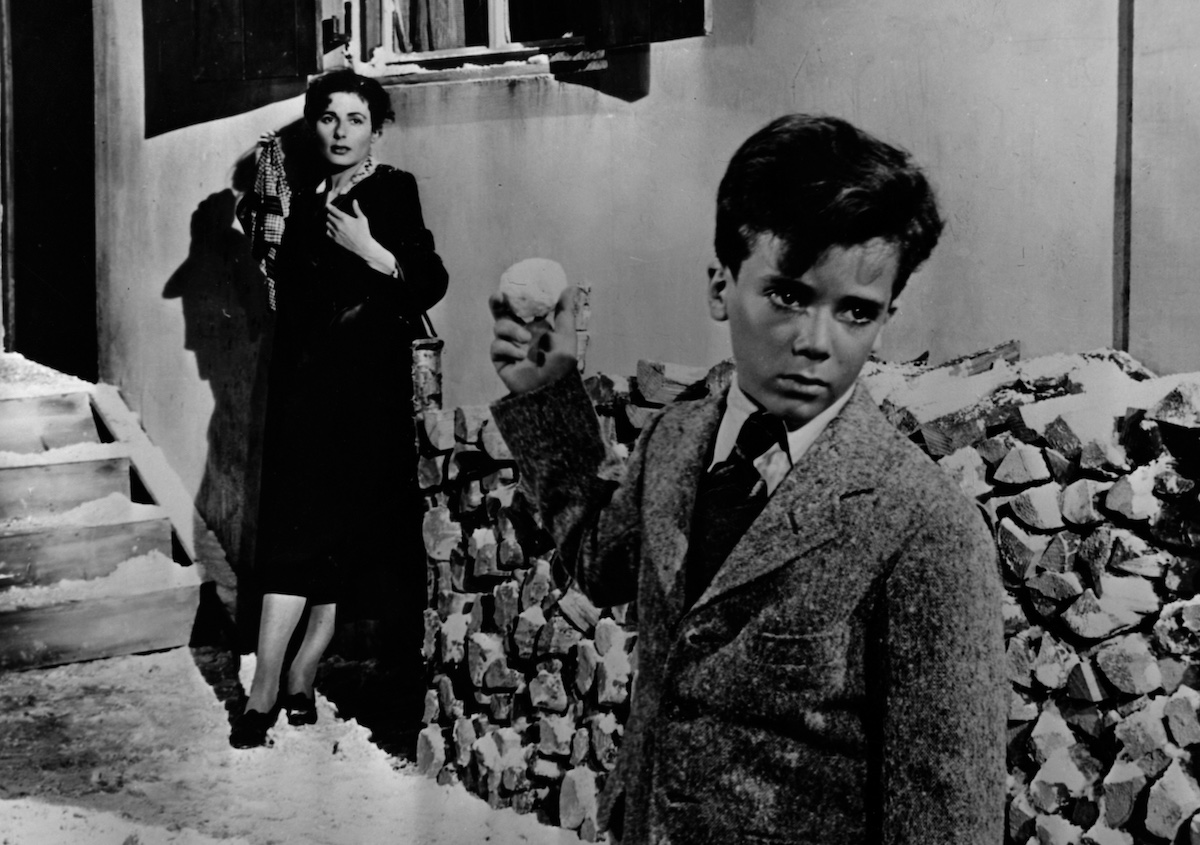
Ray, who later played several other children and teenagers, including Farraj in Lawrence of Arabia (1962), makes a fine 11-year-old Toni, while Martin Keller (who didn’t) is also effective as the younger boy. The stand-out performance by far, though, is Mitchell’s as Sonja: initially somewhat hostile and distant, later warming to the German couple who are in theory her courtroom opponents, and letting anxiety give way to joy when she skis with Toni.
There is much else distinctive in The Divided Heart, from its memorable use of the terms “bread mother” (meaning Inga) and “blood mother” (meaning Sonja) to the unusual hand-drawn background for the opening titles, to the wreckage of Munich seen through an office window: another reminder of the world-changing context in which this small-scale drama is played out.
The biggest punch it packs, though, comes not from anything subtle or sophisticated, but from the insolubly agonising problem at its heart. The court stresses rightly that Toni’s welfare must be its prime concern; the viewer, however, can never forget that whatever is eventually decided, for one side the result will be undeserved devastation.
UK | 1954 | 89 MINUTES | 1.37:1 | BLACK & WHITE | ENGLISH • SLOVENIAN


director: Charles Crichton.
writer: Jack Whittingham.
starring: Cornell Borchers, Yvonne Mitchell, Armin Dahlen & Michel Ray.
